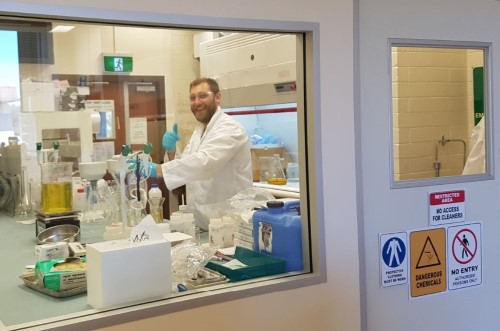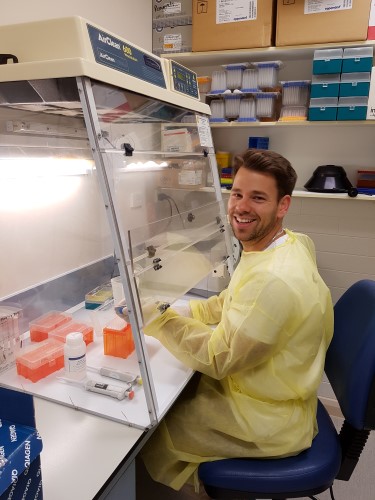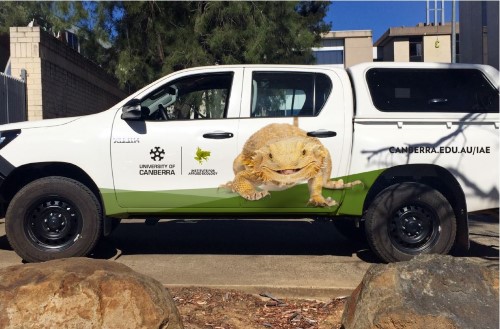Research Facilities
The Institute invests heavily in new and upgraded research facilities and scientific infrastructure for the benefit of our researchers and students.

The Laboratory contains a range of Leica microscopes, micro balances mutiprobe meters and data loggers as well as instruments for measuring water quality, algal biomass and chlorophyll concentration
The Ecochemistry Laboratory is a highly specialized laboratory undertaking analysis of chemical species in biological tissues, waters and sediments from aquatic ecosystems.
The Laboratory is the only facility in Australia able to undertake chemical speciation analysis in water, sediments, soil, animal and plant tissues.
The Wildlife Genetics Laboratory allows researchers to undertake high quality DNA research through the use of separate pre- and post- PCR space equipped for DNA sequencing, genotyping, cloning, and state-of-the-art cytogenetic work.
The Epigenomics Laboratory complements the high quality research undertaken in the Wildlife Genetics Laboratory. It is equipped to perform epigenetic and epigenomic studies, from the level of entire genomes or chromosomes down to individual genes, on model and non-model species for biomedical and ecological research projects.
The facility consists of dedicated laboratories for cell culture, molecular cytogenetics and fluorescence microscopy, as well as a large main laboratory with 16 individual work spaces and communal equipment benches.
The E2R is an outside experimental facility for freshwater research that includes ten 2500L recirculating streams and a range mesocosms and microcosms in a secure compound on campus.

The Cosmogenics Facility enables research into cosmogenic nuclide dating of geological samples, general analysis of environmental soil and sediments, fatty acid analysis of fish and macroinvertebrates, and complements the Ecochemistry Laboratory.
The Glasshouse has recently been upgraded to a state-of-the-art auto grow facility with an ‘on the go’ mobile platform and comprehensive climate controls that enable researchers to cultivate their research in a measurable environment. The Glasshouse facility also contains an in-built alarm system that sends alerts if there are any deviations to set climate measures. The Glasshouse compound also contains an outdoor experimental system of freshwater tanks that allows our researchers to examine the natural environment under controlled conditions.
The Geographic Information System and Ecological Modelling Laboratory is a highly specialised IT Laboratory equipped with high-end computers comprising of ARCGIS and other modelling software. This assists our researchers through parallel computations to manipulate, simulate and model their research with ability to facilitate the production of maps.
 The Trace DNA Laboratory is isolated from all other DNA work related buildings to enable researchers to undertake DNA work used for genetic analysis of samples where DNA quantity is low and the potential for contamination is significant.
The Trace DNA Laboratory is isolated from all other DNA work related buildings to enable researchers to undertake DNA work used for genetic analysis of samples where DNA quantity is low and the potential for contamination is significant.


